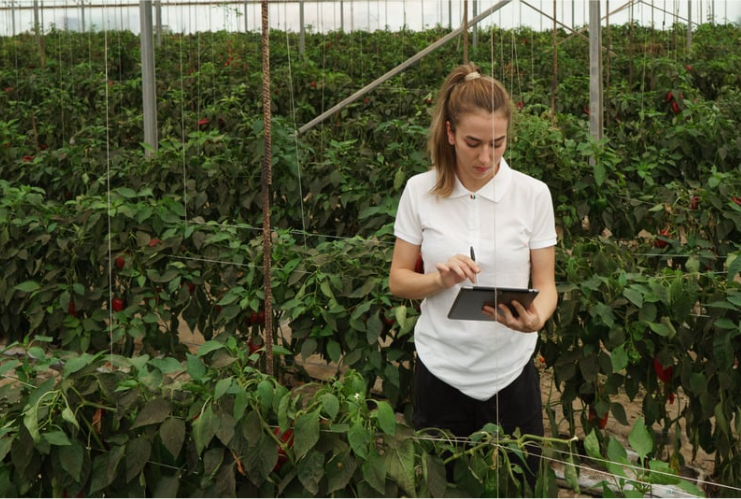Canada’s agri-food sector is very important. It helps grow food, brings in money from exports, and supports small towns. But many farms and food companies can’t find enough workers. This is a big problem in meat processing, animal farming, and greenhouses. The work is hard and only needed at certain times of the year. Most Canadians don’t want to do these jobs.
To help fill this gap and grow the agri-food sector, the Government of Canada started the Agri-Food Pilot Program. This program gives experienced, full-time workers in certain farm and food jobs a way to move to Canada permanently. Unlike short-term worker programs, this pilot helps workers become permanent residents. This makes the workforce more stable and supports long-term job solutions in important industries.
The Agri-Food Pilot helps Canadian employers and gives foreign workers a clear and organized way to build a future in Canada.
What is the Agri‑Food Pilot Program?
The Agri-Food Pilot began on May 15, 2020, as a three-year immigration program for the farm and food industries. It was created to help solve worker shortages by attracting skilled, full-time workers and offering them a clear path to stay in Canada permanently.
This program seeks to:
- Fill ongoing labour shortages in key agri‑food industries.
- Assist employers in retaining trained workers.
- Offer a stable selection process for experienced, year‑round workers.
- Foster economic stability in rural and agricultural communities
Industries and Occupations Targeted
The pilot targets workers in three agri‑food sectors, defined by NAICS codes:
- Meat Product Manufacturing (NAICS 3116)
• Retail and industrial butchers
• Farm supervisors and specialized livestock workers
• Food processing labourers - Greenhouse, Nursery and Floriculture Production (NAICS 1114)
• General farmworkers
• Farm supervisors/specialized livestock workers
• Harvest labourers (includes mushroom production) - Animal Production, excluding Aquaculture (NAICS 1121–1124, 1129)
• General farmworkers
• Farm supervisors/specialized livestock workers
Who is Eligible?
The Agri-Food Pilot Program is for foreign workers who have the right skills and experience and want to work long-term in Canada’s farm and food sector. To apply, they must meet certain requirements, including work experience, a valid job offer, education, language skills, and enough money to settle in Canada.
Applicants must demonstrate at least one year of full-time, non-seasonal work experience in Canada under a valid work permit. This experience must:
- Equal to a minimum of 1,560 hours in the past three years before applying.
- Be in one of the eligible occupations under the program.
- Paid work, volunteer work, or unpaid internships do not count.
- Match the duties and responsibilities described under the corresponding National Occupation Classification (NOC) code.
List of Eligible Occupations
The Agri-Food Pilot targets specific occupations in meat processing, livestock production, and greenhouse operations. These include:
- NOC 63201 – Retail butchers
- NOC 73401 – Industrial butchers
- NOC 82030 – Farm supervisors and specialized livestock workers
- NOC 85100 – General farm workers
- NOC 85101 – Harvesting labourers
- NOC 94141 – Food processing labourers
Application Process
Applying for the Agri-Food Pilot Program is a clear and organized process. Applicants need to follow each step closely to make sure their application is complete and correct. Here is a simple, step-by-step guide to help you through the process.
Secure a Valid Job Offer
The first step is to obtain a full-time, non-seasonal, and permanent job offer from a Canadian employer in one of the program’s eligible industries and occupations. The job offer must:
- Be in writing
- Include details such as salary, duties, working hours, and conditions
- Match the applicant’s recent Canadian work experience
- Come from an employer located outside the province of Quebec
Gather Required Documents
Before applying, candidates must collect the following supporting documents:
- Proof of Work Experience: Reference letters, pay stubs, employment contracts
- Educational Credential Assessment (ECA): For foreign education
- Language Test Results: Approved test showing at least CLB 4
- Valid Job Offer Letter: From an eligible Canadian employer
- Proof of Settlement Funds: Unless already working in Canada
- Identification Documents: Passport, birth certificate, marital status proof
- Police Certificates and Medical Exam Results: If required during processing
Apply for Permanent Residence
Once all documentation is ready, applicants may submit their application for permanent residence. Applications must:
- Be submitted using the appropriate paper-based forms provided by IRCC
- Include the completed Generic Application Form for Canada (IMM 0008) and other relevant forms
- Be mailed to the address listed on IRCC’s website for the Agri-Food Pilot
- Include all supporting documents and applicable fees
Apply for a Temporary Work Permit (If Applicable)
Eligible candidates who have not yet received permanent residence may apply for a temporary work permit to start or continue working in Canada. To qualify, the applicant must:
- Have received an eligible job offer under the pilot
- Submit a support letter from IRCC confirming their eligibility
- Apply for the work permit separately through the IRCC portal
Pay the Required Fees
Applicants must pay the following fees as part of their permanent residence application:
- Processing fee for principal applicant: CAD 850
- Right of permanent residence fee: CAD 515
- Fees for spouse/partner and dependents (if applicable)
- Biometrics fee: CAD 85 per person or CAD 170 per family
Fees may change, so applicants should confirm the latest rates on the official IRCC website.
Understand Processing Times
IRCC tries to process most Agri-Food Pilot applications within 12 months. However, the exact time may be longer depending on how complex the case is, how many applications they receive, and if all the required documents are included.
Temporary work permits are typically processed faster, often within a few months, especially when submitted online.
Where and How to Apply
To apply for permanent residence through the Agri-Food Pilot, you must use the paper-based method. This means you need to mail your full application package to the address provided by IRCC for pilot programs.
On the other hand, temporary work permits and biometrics appointments are usually handled online through the IRCC portal or at visa application centres (VACs) in the applicant’s home country.
Frequently Asked Questions
Can I apply from outside Canada?
No. To be eligible for the Agri-Food Pilot, you must already have eligible Canadian work experience, specifically, at least one year of full-time, non-seasonal work in Canada under a valid work permit.
Do I need a Labour Market Impact Assessment (LMIA)?
No. Employers under the Agri-Food Pilot are not required to obtain an LMIA. However, they must offer a valid, full-time, non-seasonal, and permanent job that aligns with the program’s eligible occupations and industries.
Can I include my family in the application?
Yes. You can include your spouse or common-law partner and dependent children in your permanent residence application. If approved, they may also become permanent residents of Canada.
Is French language ability required?
No. While French is one of Canada’s official languages, you can meet the language requirement in either English or French. A minimum of CLB 4 in speaking, reading, writing, and listening is required.
Conclusion
If you have experience in farming or food processing, this program is worth considering. The Agri-Food Pilot helps fill job gaps in Canada’s agri-food industry and gives dedicated workers a chance for long-term stability and opportunity.
If you don’t have a valid job offer yet, begin searching for work with approved Canadian employers in the listed industries. Look for jobs that are full-time, year-round, and permanent.






